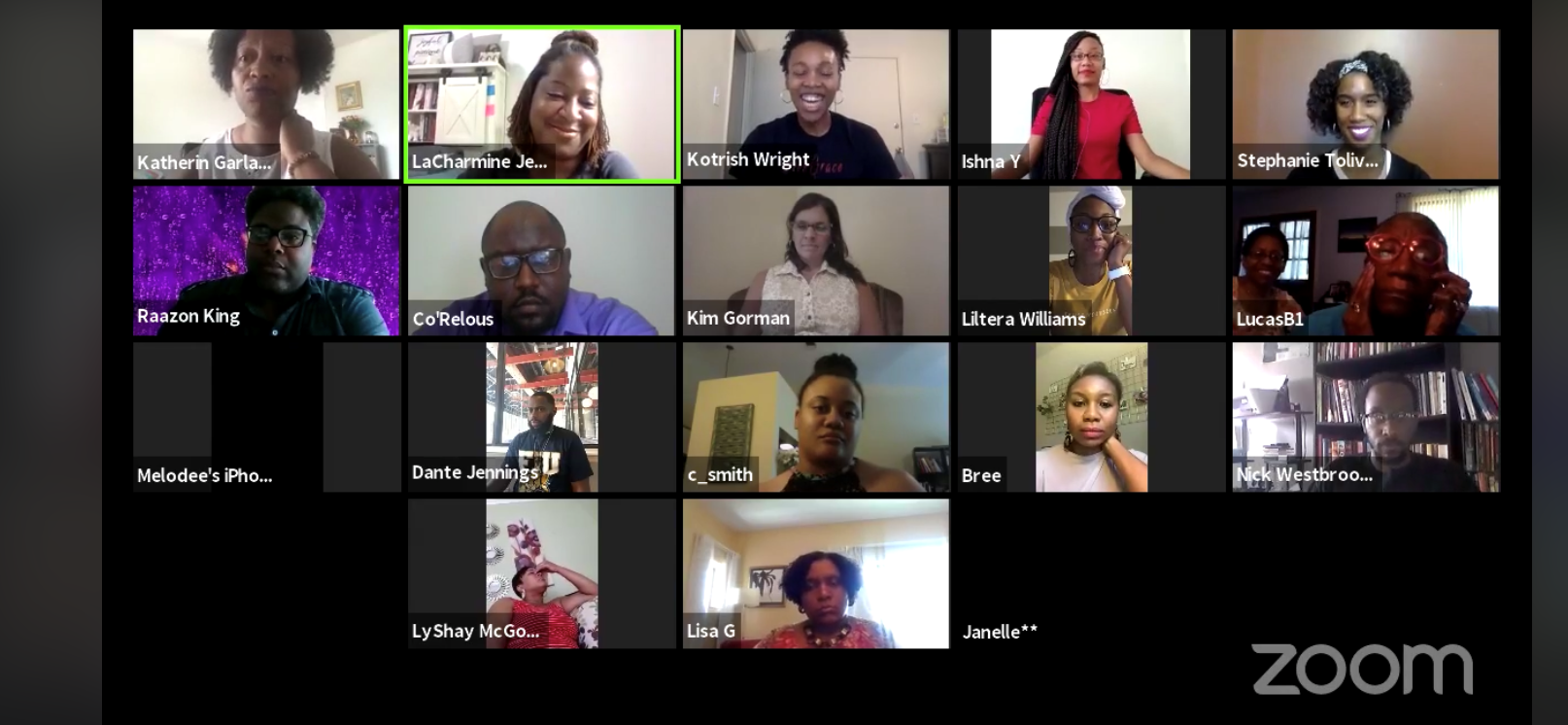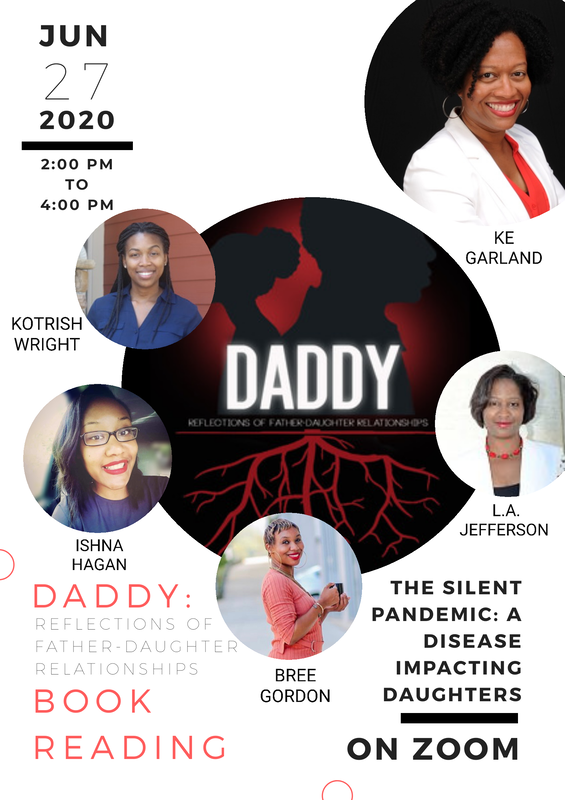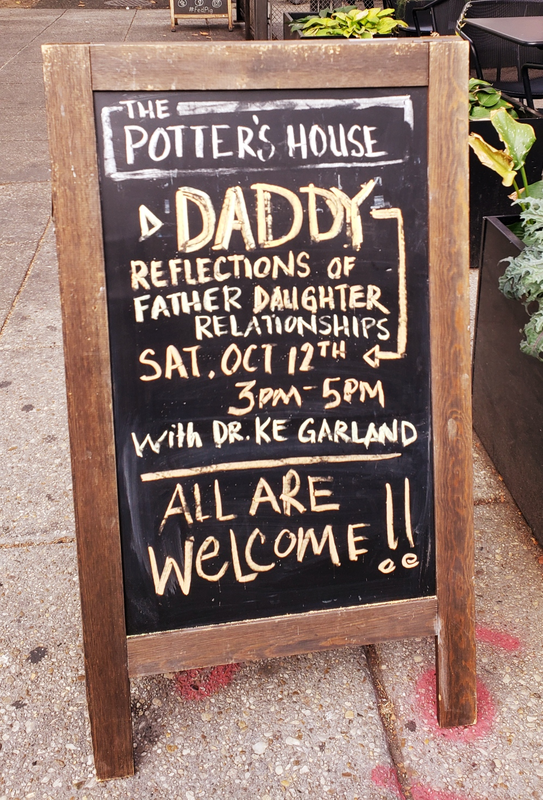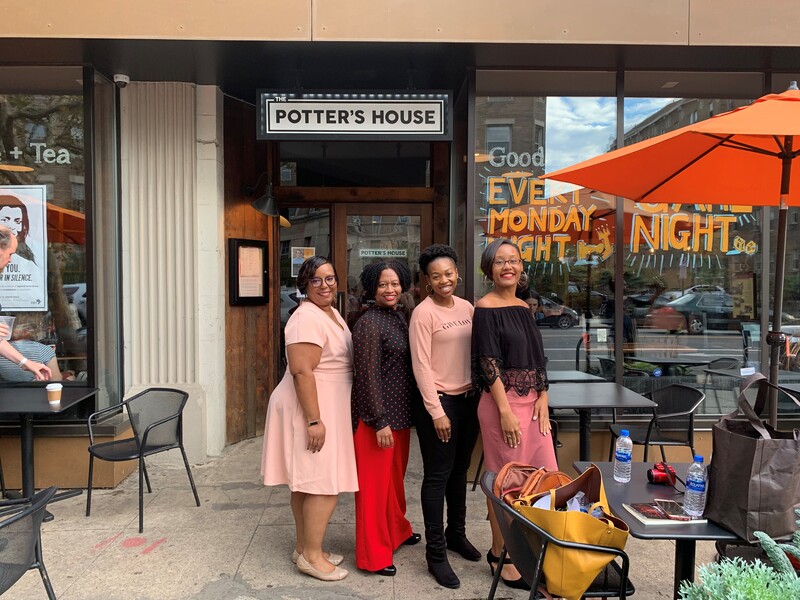|
Chandra, over at Pics and Posts, wrote a review of In Search of a Salve, for which I am very grateful. I usually don’t respond to these, but hers was a bit different, and I felt a reply was required. Please see my answers below:
Garland shows us trauma doesn’t just begin with one individual. It has a long history. She skillfully outlines the devastation of trauma and how it weaves its way through generations and impacts present life. Thank you, Chandra. Part of my purpose for writing Salve was to demonstrate how trauma can influence us before we utter our first word. Though I didn’t use the term epigenetics, I showed it in the chapter called, “Joyce,” which was about my biological mother. A baby can begin life stressed, simply from being connected to her mother and her mother’s mother. Candor! Unabashed, unflinching honesty—without apology. When one sees the full title, I’m sure all sorts of salacious thoughts about the book’s content are conjured. However, Garland was tasteful in her “tell all” approach. She leaves readers with no reason to “cover their eyes.” Thank you for this acknowledgement. I have two young adult daughters and I’m still married to “Brent.” I wanted to be as tasteful as possible, while still showing the chokehold of sex addiction and hypersexuality. The book illustrates very plainly the hard work required for healing. Garland makes it clear that the work of healing from trauma is difficult and ongoing. She probably has to deal with a lot of flak from family and friends who feel she reveals too much in her book, but this project is about her journey and her healing. To be honest, my immediate family functions a bit different than the norm. My youngest daughter, for example, read the book cover-to-cover, came to me with a list of questions, and recited a poem she wrote called, “I Am My Mother; My Mother Am I” at the book release. She posted about the book on social media and damn-near begged her friends to read it; two of them did, and of those two, one sent me several questions. Only one family member had a hard time processing that I was going to reveal so much to the public. I’ll let you guess who that could’ve been. Outside of my immediate family, my father’s side of the family, several cousins, and friends have been hella supportive. I’ve only heard from one person on my mother’s side, and that is “Grandma Hunny.” Her comments were largely negative, rude, and disrespectful. I’ll briefly share a few of her thoughts next month. Salve demonstrates how we can appear perfectly “normal” and “well” while fighting fierce demons inside. Garland had a lot of questions for which she needed answers and those questions left her feeling fragile and alone, but those closest to her often missed this, perhaps because she projected a different person to them. Her book requires that we let go of our illusions of who people are. This sounds like a question. My short answer is we see who we want to see. The longer answer is this: what occurred is a matter of both/and/both. An early expectation was set that I should suck it up and ignore any negative emotion; consequently, I became a master at hiding my feelings; however, I was no master manipulator. A lot of friends and family saw what they wanted to see, instead of what was sometimes in front of them. Also, each of us has our own barometer of what we think “okay” looks like. There were times when my behavior and emotions were not a secret, but people used their own barometer to determine what “okay” looked like to them. Again, I learned early on that no one wanted to see my tears or my pain, so it became second nature to portray what I knew everyone wanted to see, thus both/and/both. Salve is well-written and free of egregious errors and grammatical mishaps perpetrating as poetic license or trendy. I know that’s not important to everyone, but as an English professor/grammarian, it’s vexing [for me] to read books replete with errors (Sorry–not sorry—if I sound like a snob). Girl. THANK YOU for acknowledging this. I read a lot of books, and even the best traditionally published ones have errors. The worst indie books have so many that you can barely get through the story. It’s distracting. My editor read this book six times, and I read it twice as many. Fun fact, after she sent me the copy editor’s version, I found 50+ errors. We went through each and every one, because…no ma’am, Pam. Error-free is just as important to me as it is to you. I want the reader to enjoy the story, not wonder what I meant due to improper grammar and usage. The pace. Garland warned me to pace myself when I said I would read Salve over the Christmas holidays, but the pace and cadence of her work kept me riveted. I couldn’t stop reading it! And, because I have little time to read “for pleasure,” it’s wonderful when I can knock a book out in a day or two. Garland’s right though. This book is not a quick read for the”faint of heart.” Because of my academic work and writing, I read a lot about insanity, trauma, and violence, so I have developed a deeper tolerance for the heavy topics she broaches. Not one person has listened to me when I warn them not to binge read. Not one lol Garland gives fullness and depth to the people in her life. It is difficult to see them as simple cogs in her story. She makes us want to know their stories too. Thank you for noticing this, as well. I’ve read so many memoirs where it’s like someone’s sounding off about their family, spouse, or whoever. That’s not a memoir; it’s a journal. I also wrote it this way because, in real life, I tried to understand everyone’s background. For example, it seemed if I could just figure out my father’s life story, then I would understand why he functioned the way he did. Unfortunately, there are some stories we’ll never know. Bonus answer: Black Boy is one of my favorite memoirs, and I think it should be required reading for all United States citizens. That is a high bar, indeed, and I appreciate you mentioning the great, Richard Wright in a review about my work.
0 Comments
On October 24, 2023, I had the privilege of reading parts of In Search of a Salve and conversing with Dr. Andrea Dinardo and St. Clair College’s students, staff, and faculty in Windsor-Ontario, Canada. It was an amazing experience, one where the emotional connection was palpable. However, as with many readings, there was not enough time at the end for questions. Consequently, I promised the audience that I would answer here on the blog. Hopefully, the questions and answers can help a broader audience:
What is your advice to facing the fear of being vulnerable in front of others? “Do it scared” is a quote that comes to mind. Once you determine that what you have to say is important, and I guarantee it is, then I suggest doing whatever you have to do to do it scared, even if that means taking baby steps toward your overall goal. What legacy has your mother (adoptive) left behind or instilled in you? How are you honouring or keeping that legacy alive? My adoptive mother was big on doing your best, no matter what the task; therefore, no matter what I do, I put my best foot forward, and I encourage those with whom I collaborate to do the same. How do you forgive someone that you do not feel is sorry? One strategy I’ve used is to create a specific type of meditation solely for forgiveness. I imagine myself sitting with the person and telling them whatever I thought was offensive. Then, I see them apologizing to me, saying actual detailed apologetic words. After that, we hug and make amends. What advice would you have to offer someone in their mid-20s that you wish you knew at that age? I would advise anyone in their 20s to think often about how to be their authentic self. What does it mean to be yourself, and how can you do that in small ways, until it’s a part of your everyday life? How did you forgive yourself? You said that you stayed silent when you should’ve protested. How did you forgive yourself for letting your child self get hurt? I thought deeply about my upbringing and how it shaped me. I realized that I (like a lot of us) was the product of my environment. I was reared in a way that didn’t value children expressing themselves emotionally. I know that wasn’t my fault, but rather, the way adults saw as appropriate for raising a girl in the 1970s-90s. How were you moving forward knowing your dad was okay with starting a new life like nothing happened? Knowing my father was able to begin a new life with a new family (twice) hurt me deeply, but I suppressed those emotions well into adulthood, which is what contributed to my addiction. Do you believe being “ready” is a decision? When did you determine you were ready to forgive your father? “Ready” is a decision. I knew I was ready after I had my rock bottom moment. I knew that forgiving my father was one of the things I absolutely had to do to heal. How would you advise an addict with little understanding of where the root cause is from, and how to dig deep in order to figure it out and break free? I would suggest thinking about what you already know about yourself. For example, I knew I was “sad” because my adoptive mother died, but I didn’t know how much that contributed to my overall condition. Begin with what you absolutely know to be true for yourself. Then, research and read books that can help you overcome that one thing. For example, Mother Hunger helped me understand how mother-daughter bonding can affect a child and the woman she becomes. How do you care for someone who is an addict? I’m not quite sure how to answer this question, other than to say begin with love and grace. Everyone can benefit from love and grace. How to help someone who I think is experiencing sadness? I would let that person know that you’ve noticed they are sad. A lot of times, we notice things about people we are in relationship with, but we never say anything. Start with verbalizing what you’ve noticed and then ask, “How can I help?” Do you consider the opposite of addiction to be connection? How do you feel connection now? The opposite of addiction, in my opinion, is unresolved trauma. Gabor Maté talks a lot about how unresolved childhood trauma can lead to addiction. So, I’d suggest anyone with unresolved childhood trauma to seek therapy for that. I’ve never not felt connection. Instead, I was connected to many people in unhealthy ways. Today, I know how to enact boundaries, have healthy conversations, and walk away from relationships that no longer serve me. What are your thoughts on Canada set to legalize doctor assisted euthanasia for drug addicts in March 2024? I hadn’t heard about this, but it sounds awful. I don’t feel I’m qualified to answer this question, but here’s an article that explains it, in case people in another part of the world are unfamiliar: Canada will Legalize Medically Assisted Dying for Eligible People Addicted to Drugs. Forgiveness for being right and you’re treated wrong (without going into a victim) How to heal (e.g., their actions caused a reaction)? Viewing a situation as someone being treated “wrong” or another person being “right” is a bit binary. The only way I was able to forgive anyone in my life is to think of them as a human being who has a background that causes them to interact in specific ways; that way, there is little blame. Also, you can forgive someone without remaining in relationship with the person (if that’s the desire). Have you ever thought your life could be different? Absolutely. That’s why I’m able to do the things I do today 😉 Hi, my name is Katherin. I am a recovering sex addict, and as only a creative nonfiction writer would do…I’ve written a memoir about it. I’ve been writing and revising this book since 2014. Subsequently, there have been several title changes. Initially, the book was going to be called Petulia, the name that my birth mother assigned to me, but the story morphed into being a narrative about more than adoption. The next title was Codependent; that was after I did a deep dive into Melody Beattie’s book. Still, something wasn’t quite right. The something was that I was trying to save my public reputation and avoid revealing the real issue—the integral (and awful) part that sex has played in my life. So, I took a deep breath, made a decision, and revised the memoir once again. This time, the title would be Diary of a Sex Addict and written as an epistolary. But that didn’t work either. I hadn’t really kept a diary of my life, and trying to re-create one came off as inauthentic, something I don’t want to be. My next title was Addicted. Years ago, Zane, a famous, Black erotica author had written a fictional novel called Addicted, and I thought it would be clever to play off the title as a sort of nonfiction response, like hey…this is what real sex addiction is like. It is not pretty or sexy. It is dangerous and scary. But my publisher told me I couldn’t name it that for two reasons: Zane had already written a book with this title, and more importantly, the book is about much more than sex addiction. She was right. After careful thought, I renamed it In Search of a Salve, because it encompasses what I did much of my childhood, adolescence, and adult life—searched for something to heal the pain of unresolved trauma and the feelings of being thrice abandoned by each of my parents. Sex is how I did that; thus, Memoir of a Sex Addict is the subtitle. So, now that we’ve gotten that out of the way, I can tell you about the cover. As an indie author, I typically work with people I know for each phase of book production; however, this time, I went with a boutique/independent publisher (more about that decision later). Working with a publisher meant trusting that person’s contacts and process, including their graphic designer. That was hard. Before sending materials to the creative, I envisioned and made a mockup of the cover. I kept this rendition to myself, and then sent three photos and sample covers of bestselling books that I liked. What I created is first. The actual book cover follows. Pretty amazing, huh?
I’m happy the graphic designer chose this photo. The picture accurately depicts how I felt during much of my life: deserted, sad, and bewildered. Overall, I was living life in a despondent kind of way. Even if I was donning the big, bright smile that many people know me for, I still felt like the little girl in this photo on the inside for much of my life. I’ve spent the last nine years writing and revising this book, and now, with the help of my editor and NEW Reads Publications, it is nearly ready for public consumption. I do hope you’ll consider buying a copy once pre-orders go on sale, which is June 27, 2023. I also hope you’ll endure hearing about it, every now and then, because, well, that’s how books are sold in the 21st century. The COVID-19 pandemic affected everyone, and we were no different. However, we chose, like many, to host a virtual book reading via Zoom! The turnout was around 25, and the conversation was stimulating.
We were fortunate enough to host another book reading for Daddy: Reflections of Father-Daughter Relationships. Each time we do one of these, I'm in awe at how many women have been living with dysfunctional father-daughter relationships and living with unresolved trauma. It's astounding. I'm happy that this book can help so many.
This time, co-author, Tikeetha Thomas planned our reading at The Potter's House. |
Proudly powered by Weebly






 RSS Feed
RSS Feed